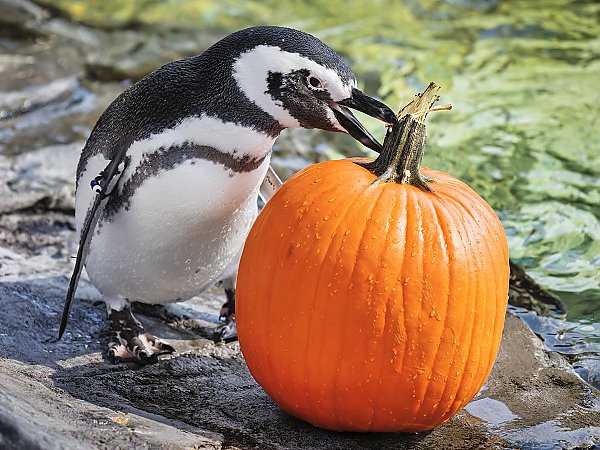
Aquarium Discounts
Aquarium coupons at Baker’s through December
The vaquita, a small porpoise found only in the northern Gulf of California in Mexico, is the world’s most endangered marine mammal.
Vaquitas are endangered because they accidentally entangle and drown in fishing nets, called gillnets, used for fish or shrimp. Vaquita deaths have increased recently due to entanglement in gillnets set for totoaba, a large fish—also endangered. Totoaba is harvested illegally for its swim bladder, which is prized in China. Fewer than 30 vaquitas remain, and the species will soon be extinct unless the mortality in fishing nets is eliminated. To save the vaquita, scientists agree that the only solution is to totally eliminate fishing with gillnets within vaquita habitat. A group of innovative Mexican fishermen are responding to the urgent need for action. Working with scientists, non-governmental agencies, and gear experts, these fishermen are developing new types of non-entangling fishing gear.
The vaquita has the right to live as well. If we don’t save them then our grandchildren won’t know them. I want them to be able to go fishing and see one and say, ‘Look, there is a vaquita like my tata (grandfather) used to see!’
— José Luis “Chalunga” Romero González

Harmful gillnets are being phased out of the Upper Gulf of California. Their filaments are so fine and transparent that marine animals, including vaquitas, turtles, sharks, and totoaba (many of which are endangered) get entangled in them and drown. Credit: Alex Espinosa
The type of gillnets used in the northern Gulf of California are inexpensive and easy to use, and it is a challenge to find replacements that are ecologically and economically sustainable. Effective management and the use of environmentally responsible fishing gear means healthy ecosystems and sustainable communities. A group of forward-thinking fishermen are leading the way in their community and providing an example for the rest of the world. Their stories give great hope that it may be truly possible to switch from gillnets to alternative fishing gears that do not endanger vaquitas and that support new and sustainable livelihoods.

Armando “Muelas” Castro prepares the acoustic detectors, called CPODs, for deployment throughout the vaquita’s range. The CPODs record the nearly continuous clicks vaquitas make when they are searching for food in the murky waters of the northern Gulf of California. They are a powerful new tool that helps scientists to better estimate trends in the population over time by listening to the vaquitas’ sounds. Credit: Alex Espinosa
These fishermen have been collaborating with government agencies and conservation organizations to design, test, and develop new fishing gears that do not endanger vaquitas. These fishermen have been working with Mexico’s National Institute of Ecology and Climate Change to deploy and retrieve acoustic monitoring devices throughout the vaquita’s range, helping scientists to estimate the population status of the vaquita and remove derelict fishing gear. They also work with Mexico’s National Fisheries Institute, World Wildlife Fund Mexico and NOAA Fisheries to test and develop various types of new, non-entangling fishing gear, such as lightweight trawls and traps. Their efforts were recently recognized when they were awarded the Conservation Merit Prize by the international Society for Marine Mammalogy for their role in the first large-scale gillnet ban and alternative gear development effort to save a marine mammal species from extinction.

Credit: © Thomas A. Jefferson/VIVA Vaquita
Although their stories are unique, the problems the fishermen of the northern Gulf of California face are shared by coastal fishing communities around the world. Each year, hundreds of thousands of marine mammals are estimated to be killed in gillnets and other entangling fishing gear around the globe. Marine mammals are important to healthy ecosystems, and seafood is a source of healthy protein that plays an important role in an environmentally responsible food supply. It is imperative that fishermen around the world adopt best management practices and use environmentally responsible fishing gear to support healthy people, marine mammal populations, and ocean ecosystems.

Aquarium coupons at Baker’s through December